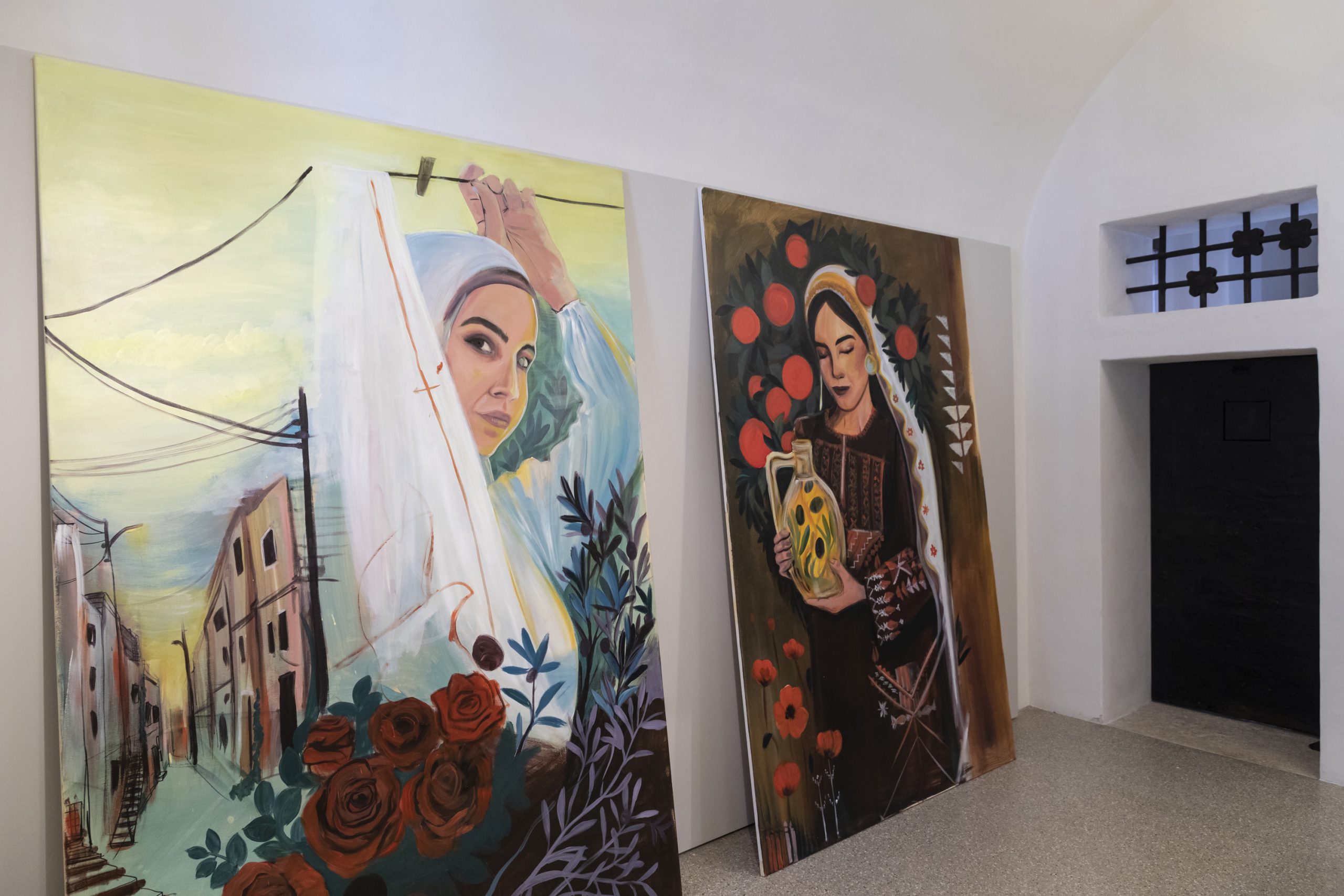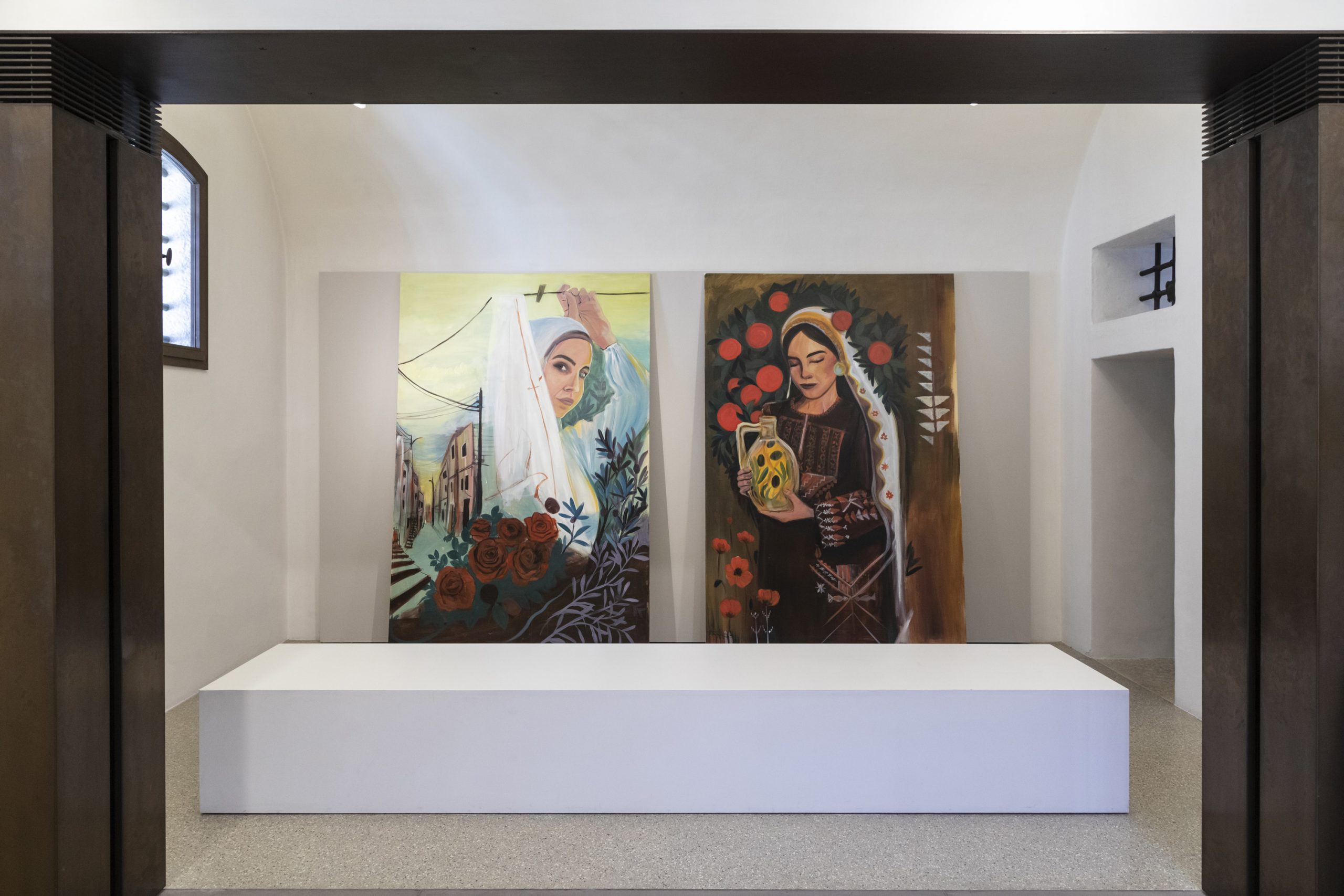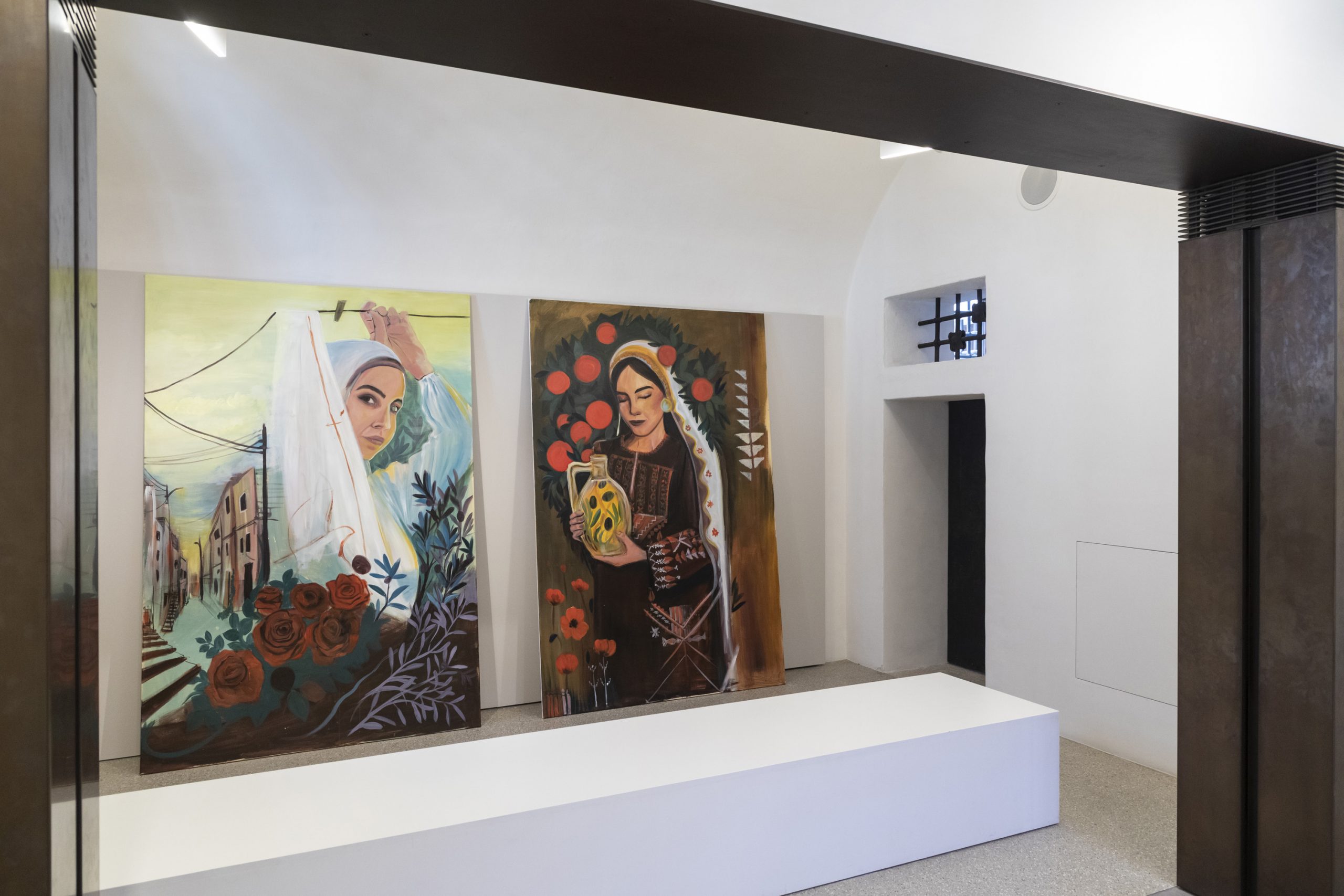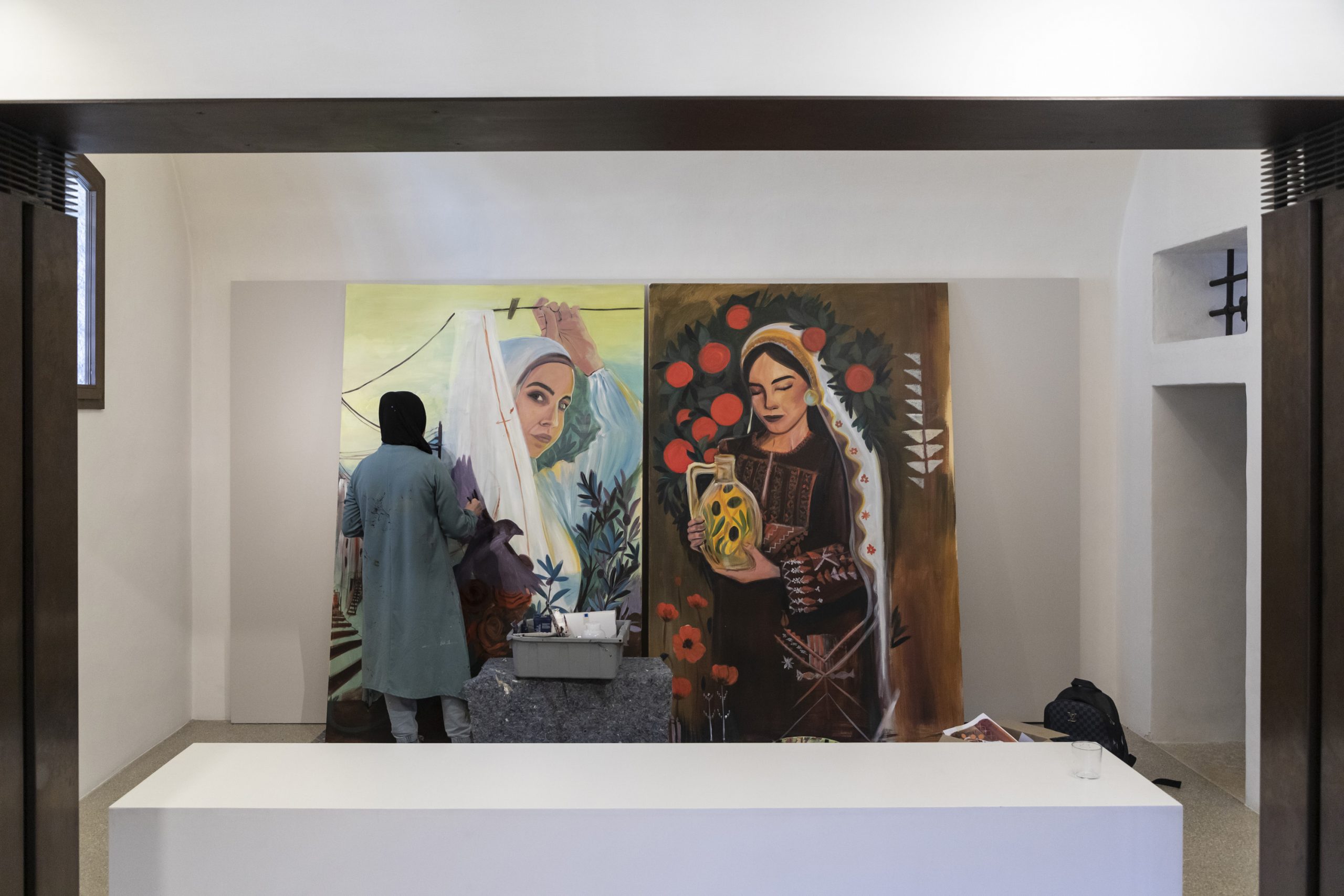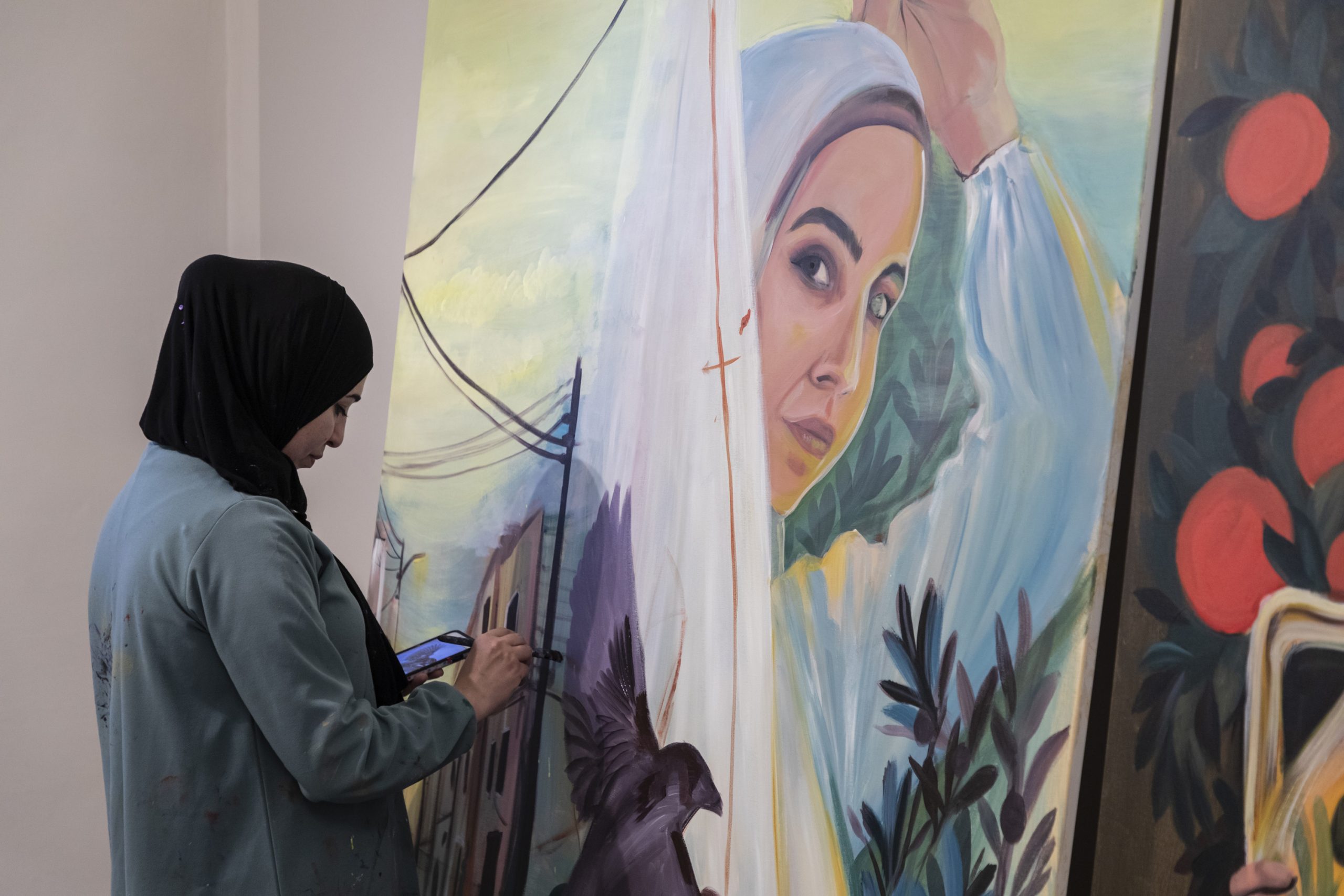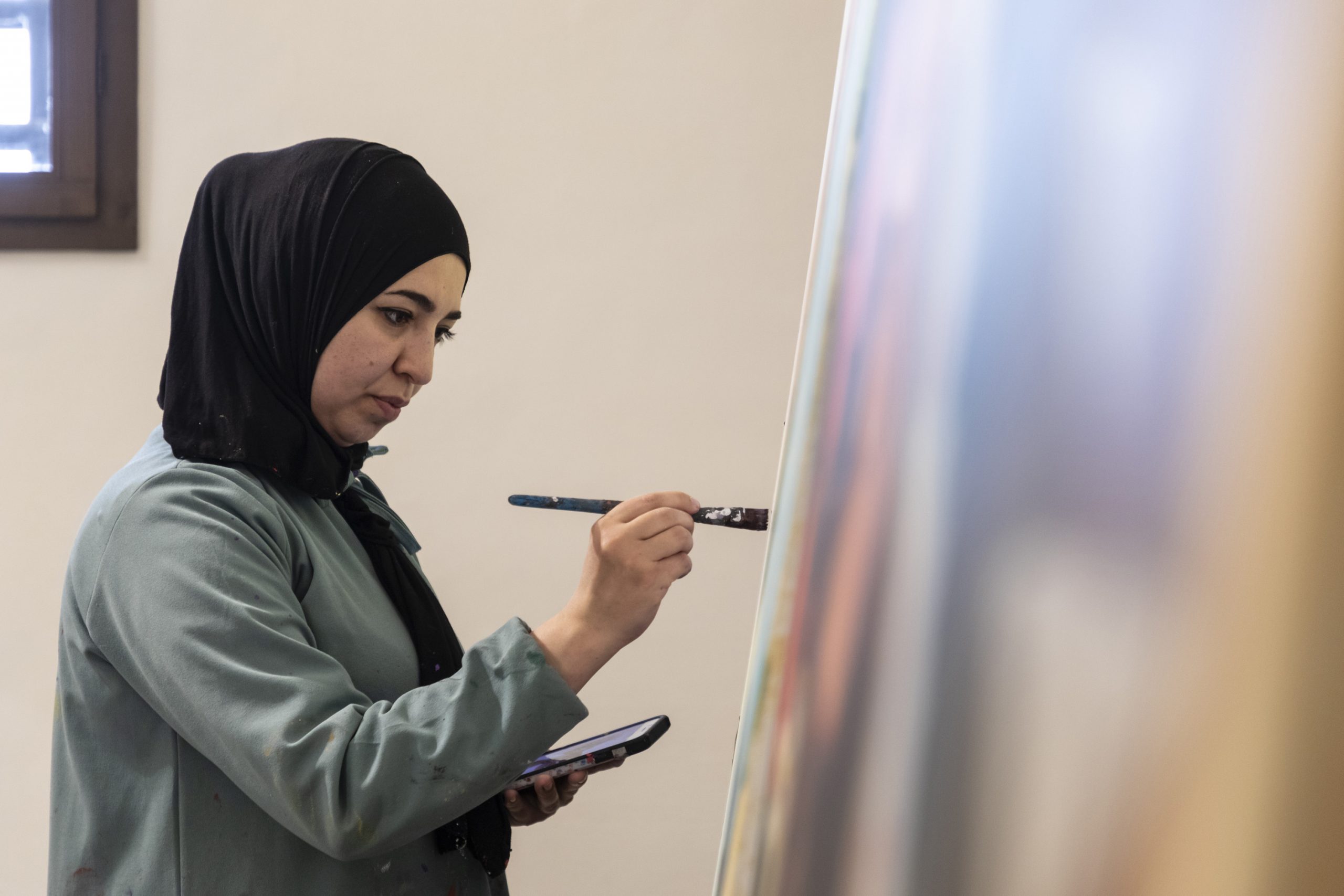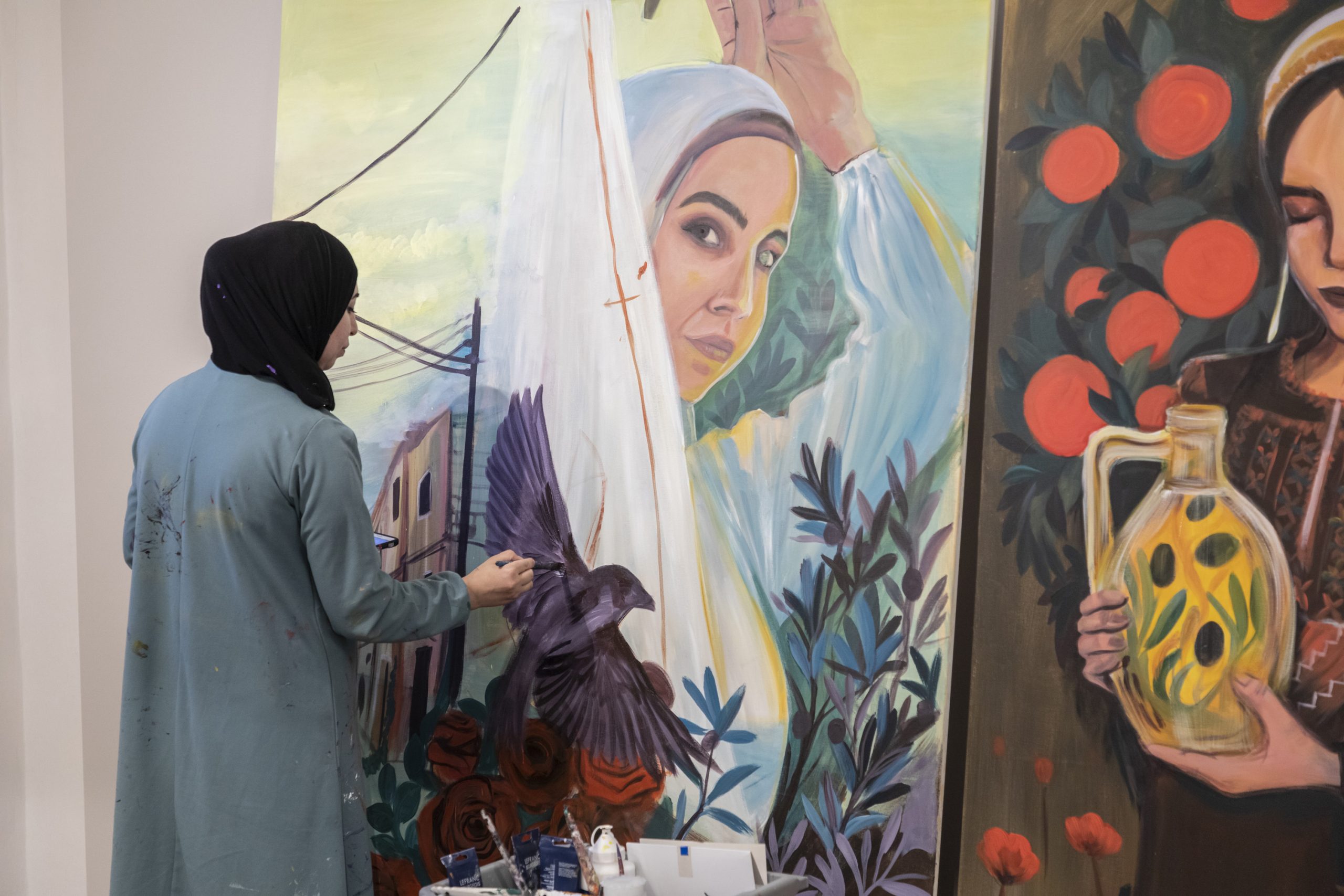
Laila Ajjawi
Born in 1990 in Irbid refugee camp in Jordan, Laila Ajjawi is a Palestinian street artist who currently lives in Amman. Her family comes from the Jenin Ajja village in Palestine. Her grandparents were forced to leave their land and move to Irbid in 1948. She uses the camp’s walls to spread awareness about the Palestinian situation and female empowerment. She has enrolled into the humanitarian field and uses art to advocate refugee causes.
Living in a refugee camp has shaped my character and my personality and has influenced my perspective on this world. Being born in a place like this is totally different than being born outside of it. The camp has always been a big bubble for me, I believed the world outside would be so much different, until I managed to get outside and explore it.
The camp was my first yard, the place where I started making art for the first time, directly on its walls. A safe choice for me, because this was my place, and these were my people. It was like experiencing something within myself: I watched closely, and I understood the potential of a graffiti, how powerful it could become if I just added a strong message in it. I started noticing how people reacted, how they started conversations while I was drawing. I must have looked rather strange to them, because street art being made wasn’t something that you would normally see in daylight. Of course, we are used to seeing a lot of graffiti inside the camps, on their walls, and it’s almost always the same type of graffiti, linked to the Palestinian cause and land, with common phrases and shapes. This can be seen in all Palestinian refugee camps, in Jordan and outside. But street art, understood in terms of fine art, was new to them, regardless of the fact that I was a woman. Many didn’t expect to find me behind these works, since the street art scene worldwide has been dominated by men: so it was a surprise for them to see my works and realise I was the author.
A Blossom of Life
2024
210×140 cm
Acrylic and golden leaf on canvas
The woman holds a jar of olive oil, and an orange tree is growing against the background. This is a representation of the many women supporting their families by doing a handcraft or another small job that provides income, in their attempt to share and overcome economic difficulties. The woman’s dress also extends to form a house reproducing the camp’s architectural patterns: this is another symbol of how women provide growth and development to their communities.
The Unseen Stories
2024 210×140 cm
Acrylic and golden leaf on canvas
The girl tells a story about my community, about fathers and brothers who work hard to afford a better education for their daughters or sisters, so that they can get a better chance in life, such as a good work opportunity, not asking them for anything in return. Since she understands the hard circumstances and challenges her family is facing, the girl voluntarily undertakes part of responsibilities and helps her family. The cloth line she holds, as well as the street behind, stand for women’s commitment and empowerment in their families and communities. The roses, the olive tree and the traditional dress represent the deep bond the girl shares with her homeland, one that is passed down through generations.






















